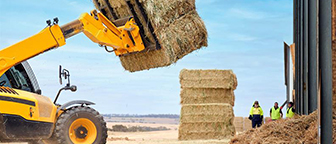Highlights for climate and carbon
- The Australian beef industry is no stranger to sustainability. Plenty of sustainability measures and goals have been set by the industry at various times to make sure Aussie beef producers are doing their bit.
- In 2017, the Australian red meat and livestock industry set a target to be carbon neutral by 2030, known as the CN30 initiative. The endgame of this project is to see Australian beef, lamb and goat production, along with processing, to have no net release of greenhouse gas emissions. The industry appears to be on track to achieving this with industry body Meat and Livestock Australia (MLA) contributing strongly to this project, investing more than $152 million into research and funding. Looking at sustainability from a longer-term perspective, Australian red meat greenhouse gas emissions have reduced by 78 per cent since 2005 to 31Mt CO2 equivalent. The red meat industry's contribution to national emissions has also fallen from 22 per cent in 2005 to 10 per cent, indicating that the project is working and is making a difference.
- MLA has also invested in extension, development and research into supporting the red meat supply chain. Key projects include understanding the impacts of climate change on animal production, life expectancies and welfare, improved grazing management and developing functional options to soften GHG from the perspective of a livestock producer.

Tom Herbert
Tom combines his agricultural degree with strong industry knowledge to provide commentary on local and international beef and cattle market trends.
Bendigo Bank Agribusiness Insights publication(s) are for information purposes only and contain unsolicited general information, without regard to any individual objectives, financial situation or needs. Please refer to the terms and conditions.





